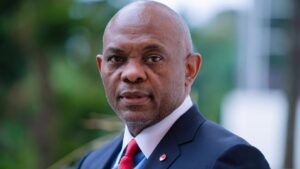Mixed reaction trails $800m World Bank palliative for subsidy removal
By Seun Ibiyemi
As Federal Government planned removal of subsidy on Premium Motor Spirit (PMS) known as Petrol and set to disburse $800 million World Bank palliative to stakeholders, mixed reactions have continued to trail the disbursement as stakeholders who spoke with Nigerian NewsDirect maintained different thoughts over the decision.
The loan which will be used to provide post-petroleum subsidy palliatives to over 50 million Nigerians, starting in June will help to mitigate the potential increase in transportation and goods costs that could arise from the removal of fuel subsidy.
The capacity to properly identify the needy in the Nigerian society will largely depend on accurate census exercise. Judging from antecedents and politicians’ inclination to distort census figures, it may prove dubious, the federal government’s capacity to accurately identify palliative-qualified Nigerians.
Recall that the Federal Government secured the sum of $800 million from the World Bank under the National Social Investment Programme as part of palliatives to cushion the negative effects of the plan to remove subsidy on the petroleum products by June 2023.
The Minister of Finance, Budget, and National Planning, Hajiya Zainab Ahmed, announced this last week while fielding questions from State House reporters after the Federal Executive Council (FEC) meeting at the Presidential Villa, Abuja.
She said the fund which had been secured was ready for disbursement.
Asked about the palliatives that would be put in place ahead of the removal subsidy on the premium motor spirit popularly known as petrol, the Minister said,“The second question on exit of fuel subsidy, this is a commitment in the Petroleum Industry Bill. There is a provision that says that 18 months after the effectiveness of the PIA that all petroleum products must be deregulated, that 18 months takes us to June 2023.”
In a swift response, the Chief Executive Officer of the Centre for the Promotion of Private Enterprises, Muda Yusuf, said fuel subsidy removal has enormous potential benefits.
“First, there is the revenue effect. The removal would unlock about N7 trillion into the federation account. This would reduce fiscal deficit, and ultimately ease the burden of mounting debt.
“Secondly, is the investment effect, currently it is extremely difficult to attract private investment into our petroleum downstream sector because of the unsustainable subsidy regime and the stifling regulatory environment.
“The subsidy removal will eliminate the distortions and stimulate investment. We would see more private investments in petroleum refineries, petrochemicals and fertiliser plants. Post subsidy regime would also unlock investments in pipelines, storage facilities, transportation and retail outlets.
“We would see the export of refined petroleum products petrochemicals and fertiliser as private capital comes into the space. Quality jobs will be created.
“There is a foreign exchange effect. This would result from the import substitution as petroleum products importation progressively decline. This would conserve foreign exchange and boost our external reserves.
“Increase in investment would translate into more jobs in the petroleum downstream sector;
“Smuggling of petroleum products across the borders will come to an end with a market pricing of refined products.”
He added that there must be palliatives, this should be segmented into immediate, short term and medium term deliverables.
Immediate and short-term options include wage review in public service, electronic cash transfers to the vulnerable groups in our society, designation of few retail outlets [maybe 10 per cent of the outlets] as subsidy stations while all others will sell at deregulated prices for a transition period of one year; introduction of subsidized public transportation schemes across the country and reduction in import duties on intermediate products for food related production to moderate food inflation.
In the medium to long-term, there should be accelerated efforts to upscale domestic refining capacity, driven by private investments; accelerated investments in rail transportation by government to ease logistics of fuel distribution across the country as well as domestic freight costs.
NECA faults $800m palliatives, insists on fixing local refineries
Also reacting yesterday, the Nigeria Employers’ Consultative Association, (NECA), faulted $800 million grant from the World Bank to the Federal Government for palliatives, saying among others, previous palliatives had proved not to palliate the economic woes of the citizens.
Speaking through its Director-General, Wale-Smatt Oyerinde, NECA said fixing local refineries must be the pre-condition for the removal of subsidy.
He said,“We commend the efforts of the Federal Government in its bid to provide support to millions of Nigerians who would be affected by the eventual subsidy removal. We must also commend the World Bank for considering Nigeria worthy of the grant.
“It is without a doubt that an abrupt removal of the subsidy without any aid to cushion the hardship this would heap on the masses, especially the most vulnerable in the society, could lead to extreme forms of poverty.
‘’The cost of living is already at a pace inconsistent with household incomes and the disposable income of workers and Nigerians, in general, has been eroded significantly by myriads of challenges. These issues also affect employers considerably and significantly.
“While we support the removal of fuel subsidy and also commend the support of the World Bank, we believe government should not shy away from the fundamental issues. These issues include fixing the refineries as a pre-condition for the removal of subsidies.
“The questions that successive governments have refused to answer are, why can’t the refineries work? If millions of dollars had been expended on Turn Around Maintenance, TAM, why are the refineries still not working?
“Why is it difficult to prosecute those that have collected money for the TAM and refused to fix the refineries? These questions beg for urgent answers.
“It is worthy of note that over the past eight months, Nigerians have been buying petrol at different prices far above the approved price. We, on several occasions, had called on the government to fix the refineries and be deliberate about establishing the right institutional and policy framework to keep them running. We had hoped this would have been given attention first.
“We cannot over-emphasize that government must stop using scarce resources to fix policy problems. It is both unrealistic and unsustainable. The subsidy regime is a scam and has not in any way benefit the so-called “vulnerable” citizens.
Therefore, it makes no economic sense to inject cash in the form of palliatives into an economy that is already beset with unending inflationary pressures.
“The $800 million at best is equivalent to about N360 billion and when you divide this by the targeted 10 million households, that amounts to approximately N36,000. What significant or tangible effect would this have on anyone, irrespective of status?
“We will only end up adding more woes to our shrinking economy. What we request is a more all-encompassing institutional structure to manage the gradual removal of subsidies after fixing the refineries and not the proposed palliatives.
“It is worthy of note that previous palliatives had proved not to palliate the economic woes of the citizens.
“We would, again, reiterate that the government must fix all the refineries. If the government is truly interested in doing this, which appears to be the most important palliative it can provide to the citizenry, then all those who have continued to sabotage every effort at fixing and having them function at optimal capacity must be held culpable.
On subsidy removal palliatives, FG on its own — TUC
Reacting in a similar vein, the Trade Union Congress, (TUC), also rejected both subsidy removal and the government’s $800million palliative to cushion its effects, saying the Federal Government was on its own.
TUC’s Secretary General, Nuhu Toro, said organised Labour never had any discussion with the Federal Government on palliatives.
He said,“This is another neocolonialism tactic by the World Bank to hold Nigeria, the hostage. It is shocking to hear that the Federal Government has secured $800 million for the so-called palliatives.
“The government did not discuss with Organised Labour palliatives. The government is on its own.
“It is instructive to note that social dialogue is undermined in this circumstance. Over the years, Nigeria has been misled by the International Monetary Fund, IMF, and World Bank. It is unacceptable to us.
“There is no doubt that our country’s debt burden and high-interest rate will be worsened by this development. We have made it clear that the government must fix our refineries and address the issue of the local refining capacity of Nigeria.”




